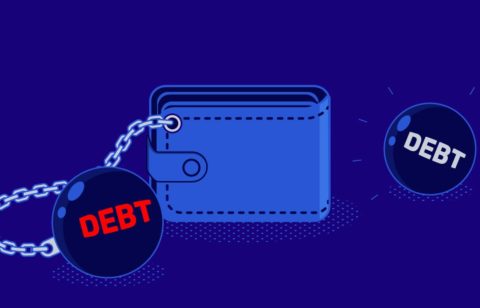While co-signing a loan can provide a safety net for a loved one, it can be a risky endeavor for you. This is especially true if the person you are helping is financially irresponsible or compromised in some way.
When you co-sign a loan, you are taking on responsibility for someone else’s debt. According to the explanation from FHA.com, this is different from a co-borrower. When you co-sign, you take it upon yourself to be equally liable for the debt that someone else will benefit from. If that person defaults on the loan, the responsibility goes entirely to you.
When you are a co-borrower, on the other hand, you also have a need for the money being borrowed. It’s OK to be answerable to that debt because you will also benefit from it.
A co-signer has the same responsibilities but does not have the same interest in the debt. See the difference? Co-signers are typically at a great disadvantage.
In most cases, an individual will co-sign for someone they feel financially responsible to help. For example, many parents co-sign loans for their children – usually to help with their student loans. As adults are living longer, there are also instances when young adults feel compelled to financially help their parents.
While it’s good to provide financial protection, co-signing may not always be the best way to go about it. There are several things you should know before signing on the dotted line.
Why is co-signing a loan bad for your finances?
Having to spend money because someone else failed to meet their payments would be unfair on your part – especially if you have been working hard to manage your own debt. Here are four reasons you should think twice before co-signing a loan.
1. It does nothing to help your finances
As discussed, being a co-signer is not like being a co-borrower because you have no vested interest in the loan. However, you must still shoulder the responsibility of paying it back. Other than trying to help the primary borrower gain approval for the loan, this will not directly help you in any way.
2. It makes you responsible for a debt you will not benefit from
The main danger in co-signing a loan is being forced to pay the debt because the primary borrower defaulted—this is the main reason it can be detrimental. If you have financial goals and expenses to meet, you may have to delay them until the necessary loan payments are made. Keep in mind that lenders usually have the legal right to go after you in this case—despite you not being the primary borrower.
3. It may have tax implications
There are some co-signed debts you can arrange to settle so that a portion of it will be forgiven. Be forewarned that the discharged amount could be considered taxable income, meaning you may have to pay taxes on it. Both you and the primary borrower will be expected to pay it off. If the latter defaults, the responsibility falls on you.
4. It can ruin relationships
The final and perhaps most important reason to avoid co-signing a loan is because it can tear relationships apart. Money has a way of coming between people. For example, if the primary borrower failed to disclose their missed payments and your finances unexpectedly took a hit, this will likely cause tension and maybe even resentment. There is also a chance other family members will get involved and possibly pick sides.
People Also Read
How can you protect your financial position and still help?
If co-signing is out of the question, there are still ways you can help a struggling loved one without compromising your financial health:
Identify why they cannot get a loan on their own
Start by understanding why they were denied. In the case of parents co-signing for their student loans, it’s understandable if the student is not in the best financial standing. But sometimes irresponsible spending habits play the biggest factor. Regardless of the reason, you must first understand the problem so you can help them solve it.
Give as much cash as you can afford to lose
A cash gift can help them more than co-signing a loan. Sometimes, those who are looking for a co-signer only want financial help. If you can afford to give a cash gift, they might not have to borrow money. However, you shouldn’t blindly provide financial aid. Make sure the person you are helping will also learn how to help themselves.
Help them research loan options and guide them in paying it back
If the primary borrower cannot get a loan due to insufficient income, there are other options they can investigate. And if they do get a loan, help them come up with a strategy to pay it back on time.
Taking care of your own financial health should be your top priority. Helping others with their finances is a wonderful gesture. But instead of just handing them money, you should help them stand on their own two feet.
Financial Health FAQs
Below are some commonly asked questions regarding financial health and the best ways to stay on track.
What is my financial health?
Financial health is the aggregate of your financial life. It presents the best indicator of your ability to thrive monetarily—from weathering the unexpected to reaching your goals.
Why is financial health important?
Financial health provides an idea about the state of your finances. Poor financial health hints that you should take care of your financial transactions and be more disciplined with your spending.
How do I measure financial health?
Take a look at your savings, debt, and your financial goals. If you have adequate savings, manageable debt and your financial goals are on track, your financial health should be in good standing.
How can I improve my financial health?
The idea is to save as much money as possible. The more you are in the positive, the better it will be for your financial health now and in the future.









